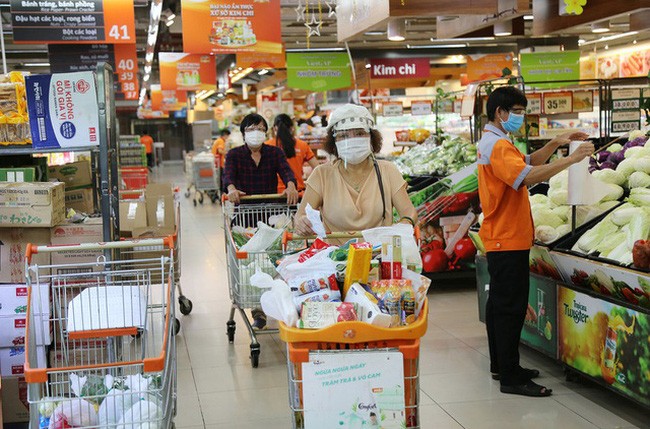
Vietnam on right track in decisive economic reform: IMF expert
Latest
 |
| According to Era Dabla-Norris, head of the IMF’s Article IV Consultation of the Department of Asia-Pacific, Vietnam is on the right track in accelerating its decisive economic reform. |
Vietnam is on the right track in accelerating its decisive economic reform, but an upgrade is needed to meet the government's aspirations of sustained, inclusive, and green growth, said an expert from the International Monetary Fund (IMF).
According to Era Dabla-Norris, head of the IMF’s Article IV Consultation of the Department of Asia-Pacific, one of the most important challenges holding back productivity and hindering an efficient allocation of resources is the pervasive economic differences across firms, sectors, and workers.
Tackling these issues requires structural reforms to improve the business environment, enhance productivity, and boost potential growth, including policies to ensure a level playing field, particularly for small- and medium-sized enterprises, that supports firm and labour formalisation, spurs technology diffusion from foreign direct investment to domestic firms, and reduces labour skill-mismatches, Dabla-Norris was quoted by Dau tu (Investment Review) as saying.
Besides, improving economic institutions, reducing corruption, promoting digital transformation, and greening the economy are other important areas of reform that Vietnam should tackle to achieve its economic ambitions going forward, she said, adding that medium-term growth prospects will depend critically on decisive reform implementation.
The IMF official added that the medium-term growth outlook will depend heavily on how reform is performed.
According to the expert, the bulk of the fiscal stimulus under the socio-economic recovery and development programme of Vietnam - especially in the field of public investment – is expected to play out in 2023 and this will further boost economic activity next year.
The data on activity in the second quarter of 2022 points to a much stronger, more frontloaded recovery than anticipated on both the domestic and external fronts, she said.
The programme, to be executed over 2022-2023, includes a wide range of policies, from near-term fiscal measures such as temporary tax reliefs, interest rate subsidies, and liquidity support for firms and households, to longer-term policies that include spending on healthcare, education, digital and physical infrastructure.
The package is well suited to entrench the recovery after the large economic shock in the second half of 2021, she noted.
If implemented effectively, the programme will spur infrastructure investment, and create momentum for reforms in areas under its agenda, such as climate change, digital transformation, innovation, financial inclusion, business climate, education, and the labour market, she noted.
These will play a critical role in limiting economic scarring – partially compensating for slower capital accumulation during the pandemic – and can boost productivity, she added.
The IMF lowered its growth forecast for the global economy this year, but believed Vietnam’s recovery will be boosted by the implementation of its socio-economic development and recovery programme.
Francois Painchaud, IMF Representative in Vietnam, recently has projected that the country's GDP will grow at 6% in 2022 and 7.2% in 2023.
Meanwhile, the Asian Development Bank (ADB) forecast that Vietnam's economic growth will recover to 6.5% in 2022 and reach 6.7% in 2023.

























